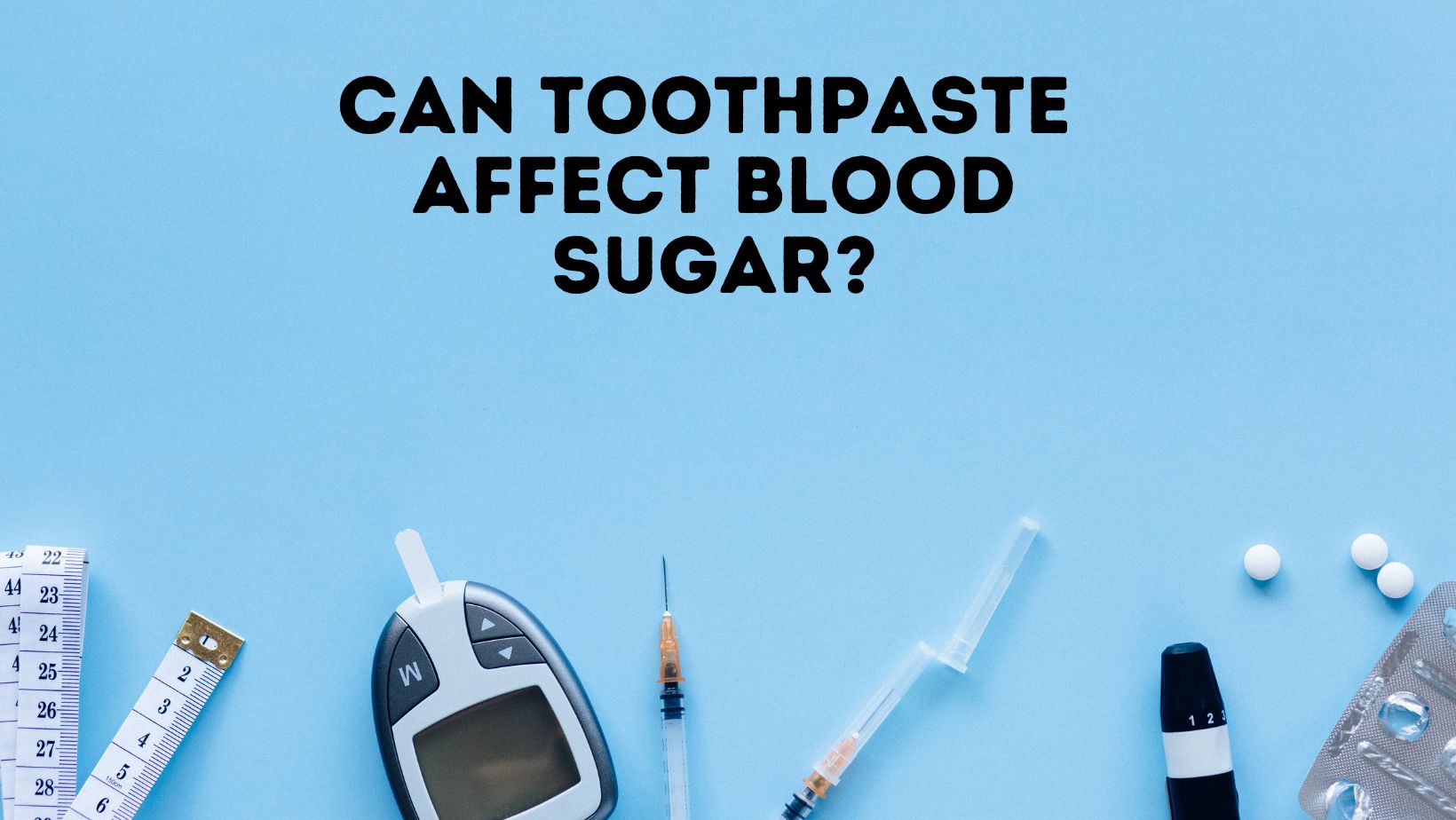
In the health and wellness world, the complex connections between Toothpaste and Blood Sugar have captivated researchers and health enthusiasts alike. It is well known that oral health plays a vital role in overall well-being. Rumors are suggesting a surprising link between toothpaste and blood sugar levels. But are these just rumors, or is there any weight to it? Can Toothpaste Affect Blood Sugar? Does Toothpaste have an impact beyond just our pearly whites? Join us as we proceed to find answers.
This article delves into the connection between oral hygiene practices and metabolic health. Although Toothpaste is centered on oral hygiene, researchers are now on their way to finding if it has any potential influence on blood sugar regulation and insulin sensitivity. Join us as we enlighten the journey to unravel the oral-systemic connection. By the end of this article, you will gain a deeper understanding of the factors that can influence our blood sugar levels.
Table of Contents
Can the Sweeteners in Toothpaste Increase Blood Sugar Levels?
Toothpaste formulations contain artificial sweeteners like saccharin, aspartame, or sucralose. These toothpaste ingredients enhance its taste while making it more pleasant to use. All of them are many times sweeter than sugar, but regardless of that, they aren’t likely to significantly increase blood sugar levels. Artificial sweeteners used in formulating Toothpaste are generally considered safe for consumption.
However, their impact on blood sugar levels differs from that of regular sugar we consume daily. The sugar alternatives used in Toothpaste and other such products are generally safe for people with diabetes or those trying to control their blood sugar.
However, despite that, it is crucial to know that Toothpaste isn’t meant to be used in large amounts. A pea-sized amount of Toothpaste used daily is generally safe and should not lead to any potential health complications. But, when consumed in large amounts, it may slightly impact blood sugar levels or lead to other health complications, depending upon the cumulative effect of various ingredients.
Is Toothpaste Bad for Diabetes?
Toothpaste is not inherently bad for diabetes; fortunately, it should not increase sugar levels directly. Individuals suffering from diabetes can use any toothpaste just like anyone who is not. Toothpaste is meant to maintain good oral hygiene, and when used rightfully, it shouldn’t adversely affect overall well-being. In fact, lesser known to many, but people with diabetes have a higher risk of gum disease and other dental problems. To maintain oral health, they must use Toothpaste that delivers promising results.
However, Diabetic individuals should look upon the following factors:
- Traditional Toothpaste is sweet, but they do not contain sugar. Instead, toothpaste formulations have artificial sweeteners that add a hint of sweetness and improve taste. Artificial sweeteners aren’t marked as very healthy, but they are still safe for people with diabetes due to no significant effect on blood sugar levels. However, diabetic individuals must always check the ingredients list of Toothpaste and ensure that it does not contain added sugars.
- Individuals with diabetes should be aware of the carbohydrate content in their Toothpaste. It is important to learn that some toothpaste formulations may contain ingredients that likely have carbohydrates. Toothpaste’s carbs are minimal and may not significantly impact blood sugar levels. But individuals who are concerned about their diabetic condition should be aware of this and must consult their healthcare provider for practical advice.
- Gum diseases can have huge implications in conjunction with your diabetes. Individuals with diabetes and gum disease simultaneously may have a harder time controlling their blood sugar levels than others. Therefore, consistency in oral care is crucial for them. Also, it is important to learn that diabetic individuals may experience delayed healing; therefore, addressing concerns quickly is advisable.

What Toothpaste Ingredient Is Bad For Blood Sugar?
While Toothpaste usually doesn’t affect blood sugar levels, some ingredients can be bad for you. Here are some toothpaste ingredients to be cautious about:
- Toothpaste typically has Sorbitol, a sugar alcohol. This commonly used sweetener in Toothpaste is usually safe for people with diabetes and has minimal impact on blood sugar levels. However, it is important to note that some individuals with diabetes can have sensitivity to Sorbitol. These individuals may experience gastrointestinal symptoms upon ingesting large amounts of Sorbitol-rich Toothpaste.
- Toothpaste formulations have Glycerin that aids in its smooth texture. Glycerin is a type of sugar alcohol; however, it doesn’t majorly impact blood sugar levels. However, if you have diabetes and want to stay alert, this information may help you.
- Toothpaste contains artificial sweeteners like saccharin, aspartame, or sucralose. While these sweeteners are way too sweet than sugar, they do not significantly impact blood sugar levels. They are considered safe for people with diabetes. But people with high diabetes levels should stay cautious with using them in large amounts.
It’s worth noting that Toothpaste cannot very likely affect blood sugar since it goes nothing else than your mouth. What you consume and what reaches your digestive system can impact your blood sugar levels, until and unless you are swallowing a large amount of Toothpaste that too very often, your diabetic condition isn’t under harm.
Can Sugar-Free Toothpaste Reduce Blood Glucose Levels?
According to a study by American Dental Association, “ADA” using sugar-free Toothpaste significantly reduces salivary glucose levels. Besides that, it also increases salivary pH levels in both diabetic and non-diabetic people. As per researchers, sugar-free Toothpaste has a beneficiary impact on salivary glucose and pH levels of all, regardless of whether one is diabetic or not.
Does brushing your teeth affect glucose tests?
Yes, this may come out as a surprise, but brushing your teeth immediately before a glucose test may affect the test results. Your Toothpaste can increase glucose levels in saliva, fasting blood sugar, and insulin altogether. Not on a blood test but for a Glucose test on a saliva sample can detect the presence of these substances in your saliva and potentially interfere with test results.
Therefore, it is important to follow the instructions provided by your healthcare professional before going for a blood sugar test. As a thumb rule, it is better to avoid eating, drinking (except water), smoking, and brushing your teeth about half to 1 hour before getting your glucose test done. Doing so is important to ensure that the glucose measurement reflects your body’s glucose levels, not those in your mouth.
Bottom Line…
Overall, Toothpaste doesn’t affect the blood sugar level in the body when used rightfully. The sweetness in Toothpaste isn’t meant to increase your body’s glucose level. And since Toothpaste is meant for oral usage only (and not ingesting/ consuming), it should increase blood sugar levels.

Hi, This is Lyn, I suffer from dental sensitivity for a very long time. PowerToothpaste.com is where I share my views of various toothpaste brands, along with tips on how to use toothpaste and what to look for when purchasing.
